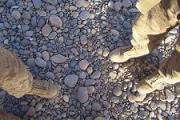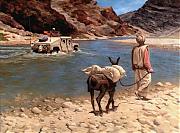I don't believe that Greenhat is arguing that our transformed forces cannot successfully operate in an unconventional war [edit: as was pointed out, they are successful], but that their current implementation is sub-optimal, ponderous, and will cost more in the lives of our men than is necessary. The greatest obstacle to fighting and winning an unconventional war is not configuration, but in training and mindset. While our transformed forces are certainly more flexible and agile than before, they are still trained with a conventional warfare mindset. In unconventional warfare, the denser the population center, the more difficult it will be for them.
By contrast, the guerrilla thrives in dense population centers. They can move without fear amongst noncombatants, find safe shelter with ease, wait in relative comfort, and strike without notice. Forces that patrol neighborhoods, handle peacekeeping missions, garrison bases, and secure areas in population centers, are particularly vulnerable to guerrilla tactics.
Could transformed units be mentored by Special Forces? It sounds good, but OJT in densely populated areas doesn't seem reasonable and the training of conventional elements sounds like it would tie up significant SF/SOF resources that could have been used to train indigenous forces. Conventional, transformed forces are best used (and perhaps mentored) in sparsely populated areas. Perhaps they would be best used to patrol the border of Iraq, as opposed to patrolling neighborhoods. Conventional forces could certainly be used to train and accompany the new Iraqi military on certain missions, but it shouldn't entail operations in cities. Such population centers are the waters where the unconventional warfare operators are best suited for.
Originally Posted by ProxyAccount









Bookmarks